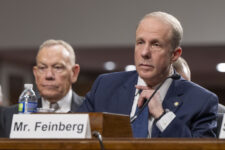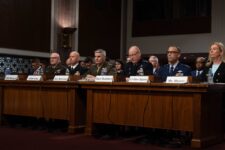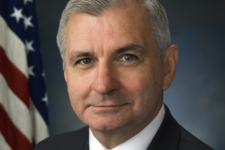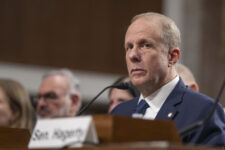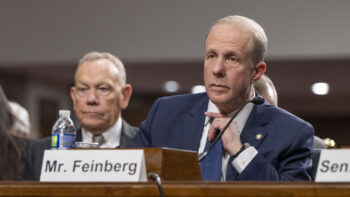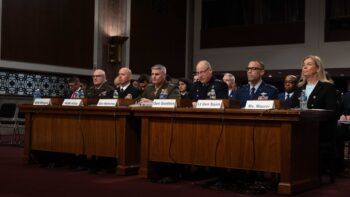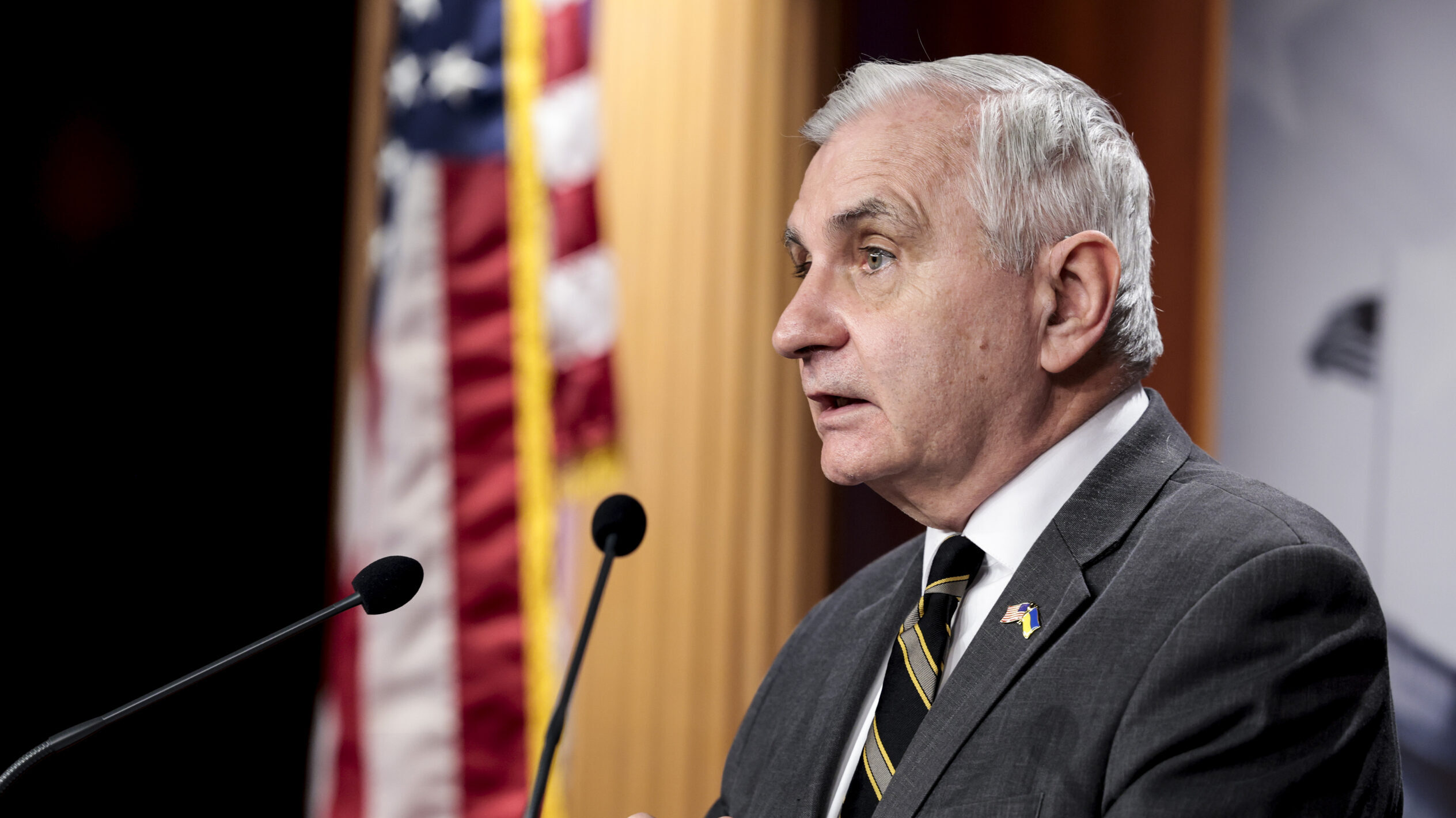
Sen. Jack Reed (D-RI) is chairman of the Senate Armed Services Committee. (Photo by Anna Moneymaker/Getty Images)
WASHINGTON — It has been almost two months since a single Republican senator’s protest of a military reproductive policy halted consideration of all senior Pentagon nominations. And with no end in sight, Senate Armed Services Committee Chairman Jack Reed warned today that holding those nominations “hostages for [a] political issue” will backfire if this drags on.
“There’s only really one rule in the United States Senate: What goes around comes around,” Reed said during a Center for New American Security event. “If there’s a situation in the future, where someone has a social policy we disagree [with], maybe health care for all, etcetera… [we’ll] just pull the plug on general officers.”
Instead, he urged Alabama Republican Sen. Tommy Tuberville to drop his legislative roadblock of top Pentagon leaders and seek “social” policy changes through other means, which could include the defense authorization bill.
Each year, the sitting administration sends tens of thousands of Pentagon nominations to Capitol Hill where lawmakers on the Senate Armed Services Committee, and their staff, are tasked with reviewing them and sending them to the floor for a vote. To expedite this process, the committee and chamber often approve hundreds of nominations at a single time via “unanimous consent.” The SASC, which prides itself on being broadly bipartisan and which, at least verbally, tries to avoid playing politics with uniformed members, almost always votes these large numbers of uniformed promotions through in seconds at the start of a hearing.
However, this process ground to a halt in March when Tuberville objected to the use of unanimous consent for top military officers. His protest stems from a new policy created to ensure that service members have the time off and funds to access an abortion after the Supreme Court overturned Roe v. Wade last year.
“I’m holding DoD nominations because the Secretary of Defense is trying to push through a massive expansion of taxpayer-subsidized abortions — without going through this body. Without going through Congress,” Tuberville said on the Senate floor in March.
Tuberville’s political maneuver means that the Pentagon’s promotion pyramid is at a standstill. Among the many promotions currently in limbo are the commanders of the Navy’s 7th Fleet in the Indo-Pacific and 5th fleet inside Central Command, who have both been nominated for new roles but have been forced to stay where they are because their replacements cannot get confirmed.
US Indo-Pacific Command head Navy Admiral John Aquilino told senators last week that “operationally” he is not impacted by the nomination standoff “because the 7th fleet commander is not going anywhere until a proper replacement is in place.”
What is being hindered, the admiral explained, is those leaders’ personal development opportunities, and family commitments, which ultimately makes it more difficult for the department to “maintain the right people in the right jobs to be able to then potentially advance and take the next right job.”
What isn’t clear is if Tuberville will give in first or if Senate Majority Leader Chuck Schumer will blink. Technically, Tuberville isn’t a hard-stop on nominations; the Senate-controlling Democrats could put up each individual nomination and hold comments on that, as opposed to doing the en bloc voting that is common with military advancements.
That could happen, in theory, with key moves like Army Chief of Staff nominee Gen. Randy George, or Biden’s eventual pick to take over the reins from Joint Chief of Staff Gen. Mark Milley. But the problem there is that each case would require taking up time on the limited calendar that Senators are assembled, and would require competing for floor time with larger issues such as the debt ceiling or judicial nominations — higher priorities for both Schumer’s caucus and President Joe Biden.
Katherine Kuzminski, a senior fellow and director of the military, veterans, and society program at CNAS, told Breaking Defense today that the situation may drag on because Schumer may be afraid of holding such individual votes, due to what it “could unleash for all other confirmations.”
“[It could become] a real waste of time and resource if every nominee for any political position is held up, but made all the more nonsensical in that uniformed service members do not set policy,” she told Breaking Defense today.
Amid Democratic turmoil, Senate passes yearlong funding stopgap with $892B for defense
The full year continuing resolution passed in a 54-46 vote largely along party lines, preventing a government shutdown before a midnight deadline.

